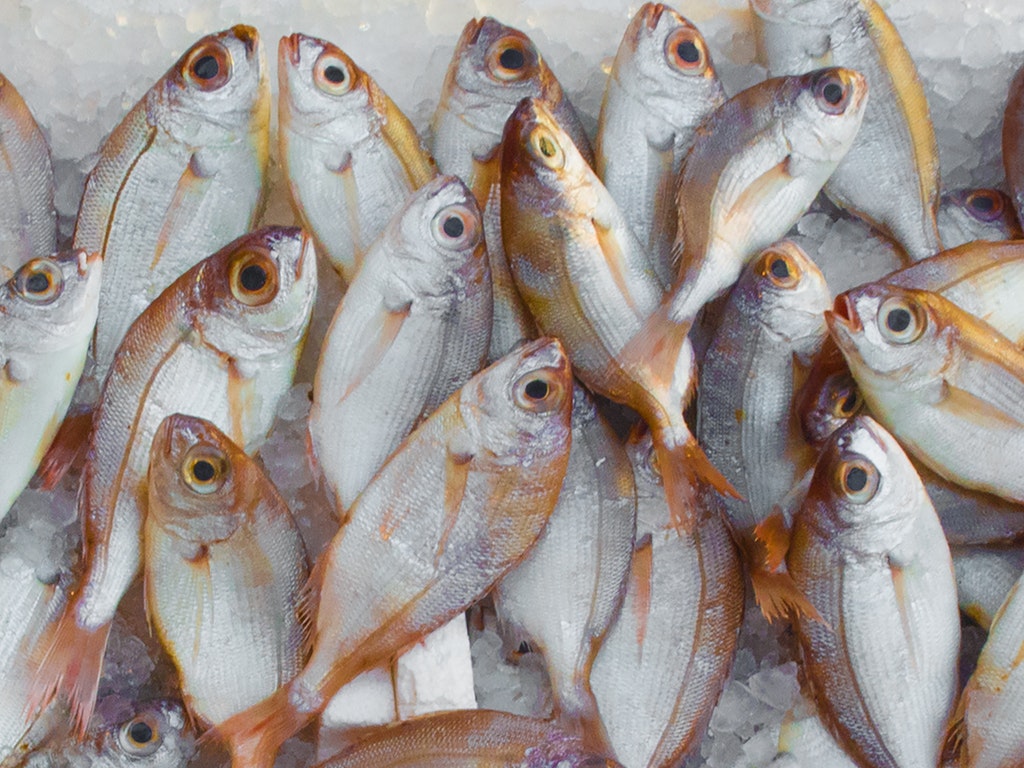3 Mins Read
Feel overwhelmed during your seafood shop and not sure which labels means what? Not to worry, Green Queen has put together this handy guide to help you navigate the confusing world of seafood ecolabels.
Next week, we share our list of the top places to buy sustainable seafood in Hong Kong. Stay tuned!
Dolphin Safe is a seafood ecolabel for canned tuna developed by Earth Island Institute. It was founded because traditional tuna fishing methods utilizes large nets that frequently ensnared dolphins. Dolphin safe denotes tuna that has been fished with no dolphin collateral damage using dolphin safe nets (ie no drift grift nets). Large fishing boats that comply with Dolphin safe must have an independent observer onboard to guarantee adherence to the guidelines. Over 90% of tuna fishing companies are now Dolphin Safe approved. Popular Dolphin safe brands are Chicken of the Sea, Bumblebee Seafoods and Starkist Seafoods. Dolphin Safe is the precursor to all seafood ecolabel programmes.
Friend of the Sea is a global sustainable seafood ecolabel for both wild and farmed seafood that adheres to the Food and Agriculture Organization of the United Nations (FAO) guidelines. Friend of the Sea certified fish farms cannot use growth hormones or GMO fish feed and must actively conserve marine habitats. Friend of the Sea was developed following the success of Dolphin Safe by the same team. Friend of the sea certifies products including all main commercial fish species, fishmeal, fishfeed and fish oil.
The Best Aquaculture Practices (BAP) seal is issued by the Global Aquaculture Alliance and is a certification scheme for the global aquaculture industry including farms, hatcheries, and processing plants. BAP sets standards for social responsibility, animal welfare, food safety and traceability. This ecolabel applies exclusively to farmed fish.
The Marine Stewardship Council (MSC) Certified Sustainable Seafood label is the most prevalent of the globally accepted ecolabels for seafood and seafood products and applies to both farmed and wild fish. The MSC programme is especially concerned with seafood traceability; the seal demonstrates that the seafood you are purchasing originates from a sustainable fishery and has been verified throughout the chain-of-custody. This helps combat the problems of overfishing and bycatch, and various studies have found that the MSC is in deed helping to secure fish stocks. The MSC label is especially helpful for ascertaining which wild fish species to consume.
The Agriculture and Fisheries Department (AFCD) of Hong Kong has established an Accredited Fish Farm (AFF) label which denotes local and regional farmed seafood from registered farms that follow responsible aquaculture practices. The label is managed in conjunction with the Fish Marketing Organization (FMO) which helps to expand the label’s reach.
Don’t miss Part 1 in this series where we cover the ins and outs of sustainable seafood and how to buy it.
Lead photo courtesy of Pexels; logos courtesy of the respective ecolabel programmes.









